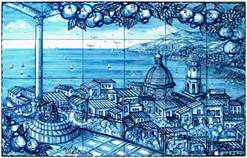Speaker
Dr
Marina Konstantinova
(CENTER FOR PHYSICAL SCIENCES AND TECHNOLOGY)
Description
Over the last few years increasing attention has been paid to the elements required for the estimation of risk of non-human biota related to ionizing radiation. Freshwater biota of a small humic lake, called Red, which became meromictic some thirty-five years ago due to the inflow of a large amount of humic water, was investigated. The bottom areas of this lake are related to the favorite sites of the tench (Tinca tinca) winter torpor.
Long-term studies data of 137Cs concentrations in Red lake water and sediments were used as inputs for ERICA software. Dose rates for all default freshwater biota were assessed. Additionally, these values were evaluated for the tench with real parameters.
It was found that the total dose rate of tench due to 137Cs radiation is found to be 8.45∙10-2 µGy h-1, which is much less than ERICA screening value of 10 μGy h-1. However, this result shows that the fish according to its spending winter torpor period in the sediments with the elevated radiocesium content receives the extra external dose, comparing with that due to natural radionuclides, that can cause genetic changes.
Author
Dr
Marina Konstantinova
(CENTER FOR PHYSICAL SCIENCES AND TECHNOLOGY)
Co-authors
Aurelija Vasiljeva
(Vilnius University)
Dr
Nikolaj Tarasiuk
(CENTER FOR PHYSICAL SCIENCES AND TECHNOLOGY)
Dr
Nina Prokopčiuk
(CENTER FOR PHYSICAL SCIENCES AND TECHNOLOGY)

